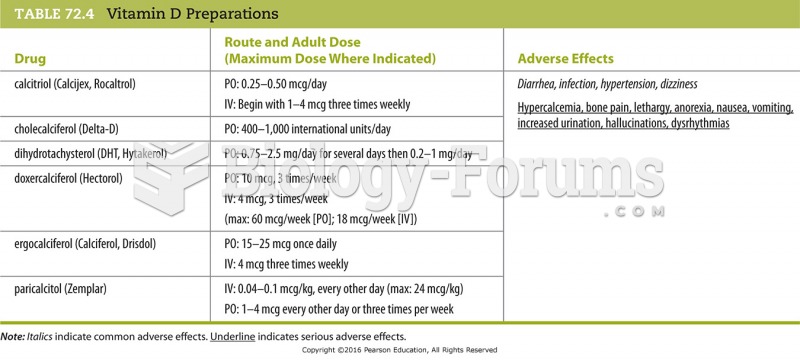|
|
|
Although puberty usually occurs in the early teenage years, the world's youngest parents were two Chinese children who had their first baby when they were 8 and 9 years of age.
More than 4.4billion prescriptions were dispensed within the United States in 2016.
It is believed that the Incas used anesthesia. Evidence supports the theory that shamans chewed cocoa leaves and drilled holes into the heads of patients (letting evil spirits escape), spitting into the wounds they made. The mixture of cocaine, saliva, and resin numbed the site enough to allow hours of drilling.
Between 1999 and 2012, American adults with high total cholesterol decreased from 18.3% to 12.9%
By definition, when a medication is administered intravenously, its bioavailability is 100%.







